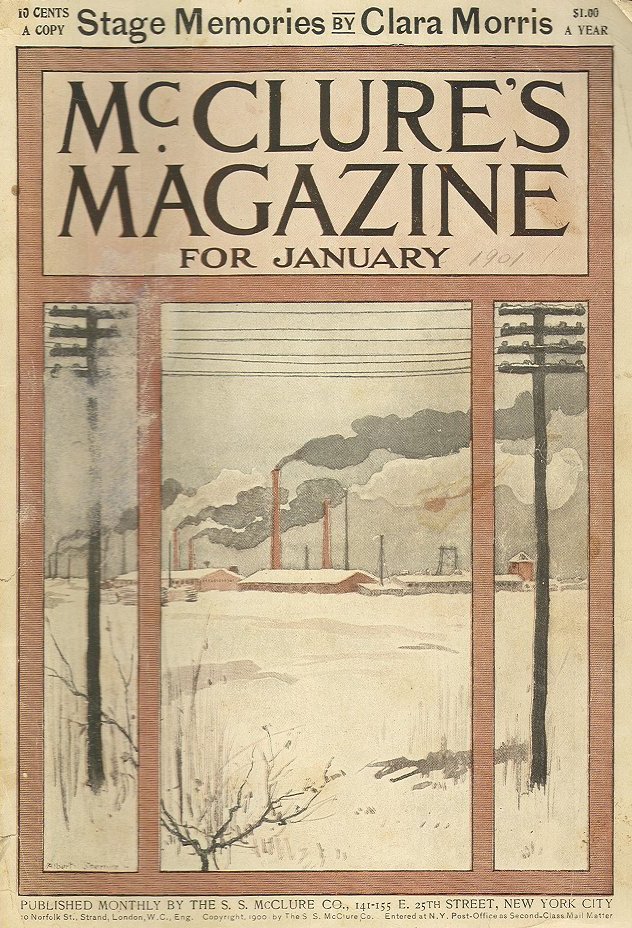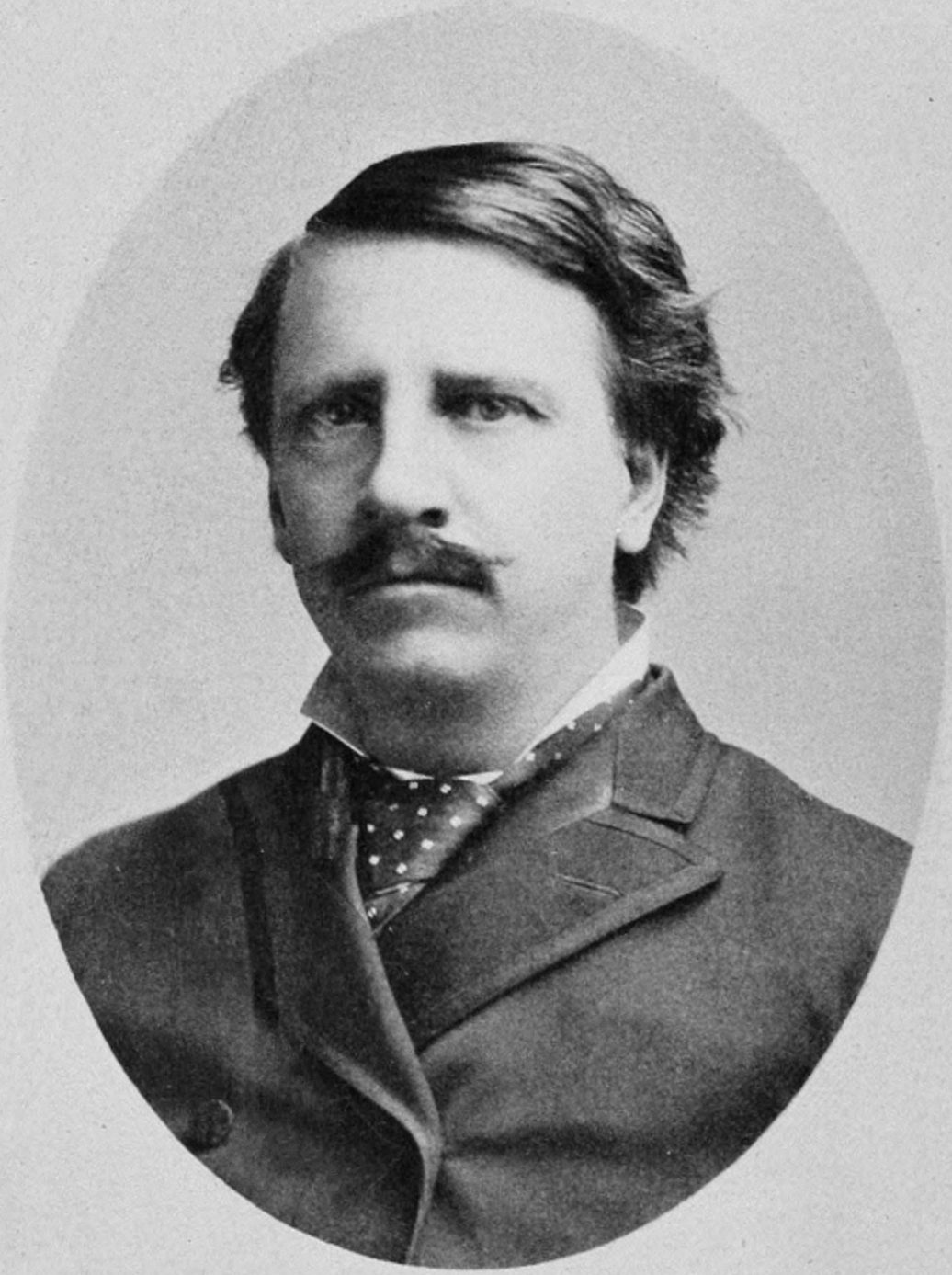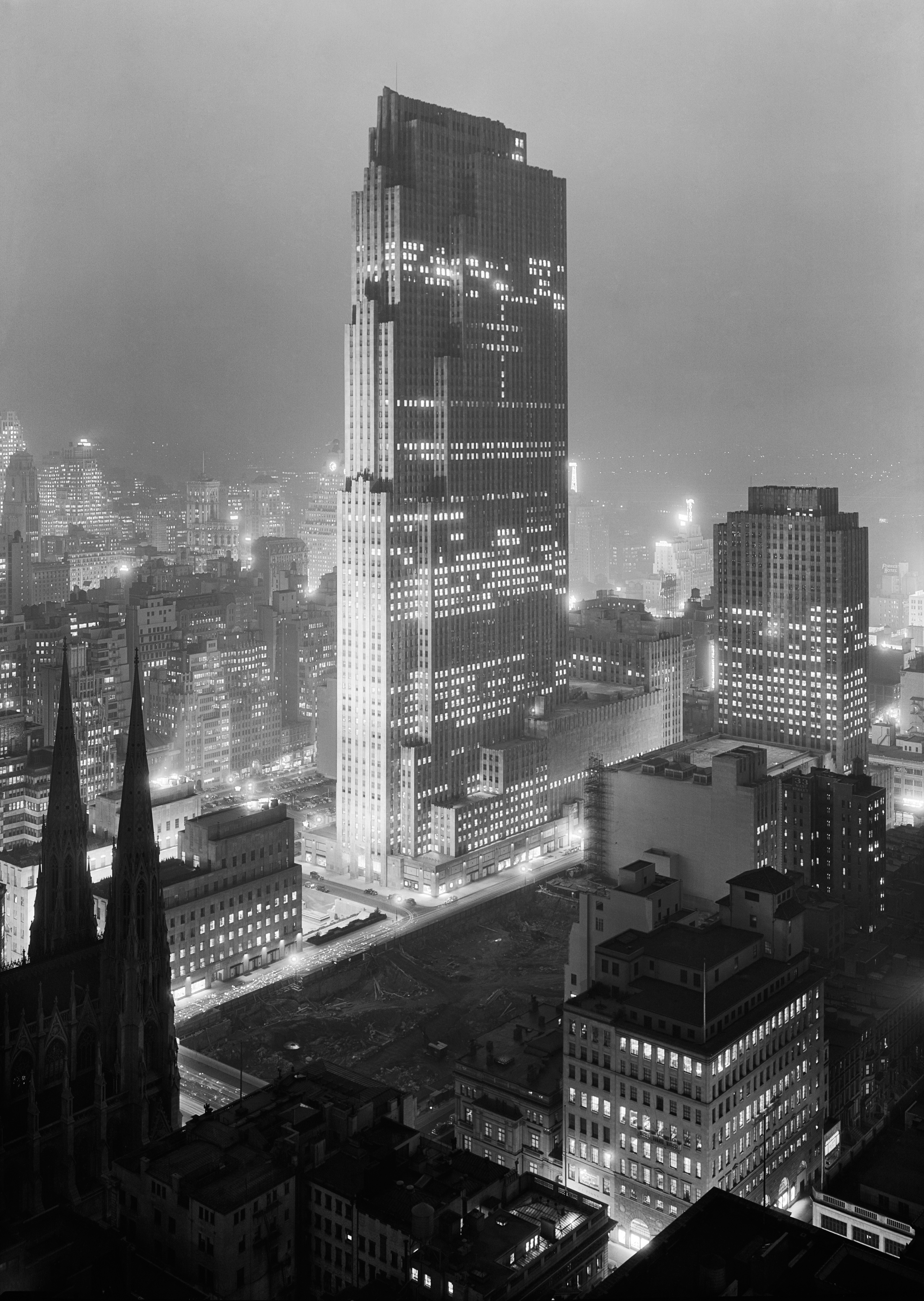|
The Treason Of The Senate
''The Treason of the Senate'' was a series of articles in ''Cosmopolitan'' magazine by David Graham Phillips, published in 1906. The articles were each published a month apart, beginning with the forward in February and the last article, in July. The series is a caustic exposé of the corruption of the United States Senate, particularly the corporate magnate-turned-Senator Nelson Aldrich from Rhode Island. During the composition of the articles, Phillips received help from newspaper baron William Randolph Hearst, who then desired to publish sensationalist stories to attract more readership of his publications. The series was thought to be widely accepted because of the lack of much criticism. There were not any efforts to discredit Phillips, apart from an article written in the Chicago Tribune in March 1906, after only the foreword and first article had been published. The article is titled "No Treason In the Senate" and was asking for proof of Phillips' claims. The release of the ... [...More Info...] [...Related Items...] OR: [Wikipedia] [Google] [Baidu] |
Cosmopolitan (magazine)
''Cosmopolitan'' is an American monthly fashion and entertainment magazine for women, first published based in New York City in March 1886 as a family magazine; it was later transformed into a literary magazine and, since 1965, has become a women's magazine. ''Cosmopolitan'' is one of the best-selling magazines and is directed mainly towards a female audience. Jessica Pels is the magazine's current editor-in-chief. Formerly titled ''The Cosmopolitan'' and often referred to as ''Cosmo'', throughout the years, ''Cosmopolitan'' has adapted its style and content. Its current incarnation was originally marketed as a woman's fashion magazine with articles on home, family, and cooking. Eventually, editor-in-chief Helen Gurley Brown changed its attention to more of a women empowerment magazine. Nowadays, its content includes articles discussing relationships, sex, health, careers, self-improvement, celebrities, fashion, horoscopes, and beauty. ''Cosmopolitan'' is published by New York ... [...More Info...] [...Related Items...] OR: [Wikipedia] [Google] [Baidu] |
Chauncey Depew
Chauncey Mitchell Depew (April 23, 1834April 5, 1928) was an American attorney, businessman, and Republican politician. He is best remembered for his two terms as United States Senator from New York and for his work for Cornelius Vanderbilt, as an attorney and as president of the New York Central Railroad System. Early life Depew was born in Peekskill, New York, on April 23, 1834, to Isaac Depew (1800–1869) and Martha Minot (Mitchell) Depew (1810–1885). Family Depew's father was a merchant and farmer who pioneered river transportation between Peekskill and New York and was descended from François DuPuy, a French Huguenot who purchased land from natives at the present site of Peekskill. Through his mother, Depew was descended from Rev. Josiah Sherman, who served as a chaplain with rank of captain in the Revolutionary War and who was the brother of American founding father Roger Sherman and Rev. Charles Chauncy, the second president of Harvard College. Education Depew atte ... [...More Info...] [...Related Items...] OR: [Wikipedia] [Google] [Baidu] |
Magazine Articles
A magazine is a periodical publication, generally published on a regular schedule (often weekly or monthly), containing a variety of content. They are generally financed by advertising, purchase price, prepaid subscriptions, or by a combination of the three. Definition In the technical sense a ''journal'' has continuous pagination throughout a volume. Thus '' Business Week'', which starts each issue anew with page one, is a magazine, but the '' Journal of Business Communication'', which continues the same sequence of pagination throughout the coterminous year, is a journal. Some professional or trade publications are also peer-reviewed, for example the '' Journal of Accountancy''. Non-peer-reviewed academic or professional publications are generally ''professional magazines''. That a publication calls itself a ''journal'' does not make it a journal in the technical sense; ''The Wall Street Journal'' is actually a newspaper. Etymology The word "magazine" derives from Arabic ... [...More Info...] [...Related Items...] OR: [Wikipedia] [Google] [Baidu] |
Investigative Journalism
Investigative journalism is a form of journalism in which reporters deeply investigate a single topic of interest, such as serious crimes, political corruption, or corporate wrongdoing. An investigative journalist may spend months or years researching and preparing a report. Practitioners sometimes use the terms "watchdog reporting" or "accountability reporting." Most investigative journalism has traditionally been conducted by newspapers, wire services, and freelance journalists. With the decline in income through advertising, many traditional news services have struggled to fund investigative journalism, due to it being very time-consuming and expensive. Journalistic investigations are increasingly carried out by news organizations working together, even internationally (as in the case of the Panama Papers and Paradise Papers), or by organizations such as ProPublica, which have not operated previously as news publishers and which rely on the support of the public and benefact ... [...More Info...] [...Related Items...] OR: [Wikipedia] [Google] [Baidu] |
Muckraker
The muckrakers were reform-minded journalists, writers, and photographers in the Progressive Era in the United States (1890s–1920s) who claimed to expose corruption and wrongdoing in established institutions, often through sensationalist publications. The modern term generally references investigative journalism or watchdog journalism; investigative journalists in the US are occasionally called "muckrakers" informally. The muckrakers played a highly visible role during the Progressive Era. Muckraking magazines—notably ''McClure's'' of the publisher S. S. McClure—took on corporate monopolies and political machines, while trying to raise public awareness and anger at urban poverty, unsafe working conditions, prostitution, and child labor. Most of the muckrakers wrote nonfiction, but fictional exposés often had a major impact, too, such as those by Upton Sinclair. In contemporary American usage, the term can refer to journalists or others who "dig deep for the facts" or, ... [...More Info...] [...Related Items...] OR: [Wikipedia] [Google] [Baidu] |
John Coit Spooner
John Coit Spooner (January 6, 1843June 11, 1919) was a politician and lawyer from Wisconsin. He served in the United States Senate from 1885 to 1891 and from 1897 to 1907. A Republican, by the 1890s, he was one of the "Big Four" key Republicans who largely controlled the major decisions of the Senate, along with Orville H. Platt of Connecticut, William B. Allison of Iowa, and Nelson W. Aldrich of Rhode Island. Early life Spooner was born in Lawrenceburg, Indiana, on January 6, 1843, the son of Philip Loring Spooner and Lydia (Coit) Spooner. Philip Spooner was an attorney and judge and served on the bench in both Indiana and Wisconsin. Spooner moved with his parents to Madison, Wisconsin, in 1859. He attended the common schools and graduated from the University of Wisconsin with a Bachelor of Philosophy (Philosophiae Baccalaureus, or P.B.) degree in 1864. While in college, Spooner joined the Psi Upsilon fraternity and was admitted to membership in Phi Beta Kappa. Military se ... [...More Info...] [...Related Items...] OR: [Wikipedia] [Google] [Baidu] |
Chesapeake And Ohio Canal
The Chesapeake and Ohio Canal, abbreviated as the C&O Canal and occasionally called the "Grand Old Ditch," operated from 1831 until 1924 along the Potomac River between Washington, D.C. and Cumberland, Maryland. It replaced the Potomac Canal, which shut down completely in 1828, and could operate during months in which the water level was too low for the former canal. The canal's principal cargo was coal from the Allegheny Mountains. Construction on the canal began in 1828 and ended in 1850 with the completion of a stretch to Cumberland, although the Baltimore and Ohio Railroad had already reached Cumberland in 1842. Rising and falling over an elevation change of , it required the construction of 74 Lock (water transport), canal locks, 11 Navigable aqueduct, aqueducts to cross major streams, more than 240 culverts to cross smaller streams, and the Paw Paw Tunnel. A planned section to the Ohio River at Pittsburgh was never built. The canalway is now maintained as the Chesapeake ... [...More Info...] [...Related Items...] OR: [Wikipedia] [Google] [Baidu] |
Arthur Pue Gorman
Arthur Pue Gorman (March 11, 1839June 4, 1906) was an American politician. He was leader of the Gorman-Rasin organization with Isaac Freeman Rasin that controlled the Maryland Democratic Party from the late 1870s until his death in 1906. Gorman served as United States Senate, United States Senator from Maryland from 1881 to 1899 and again from 1903 until his death. He was a prominent leader of the Bourbon Democrat faction of the Democratic Party (United States), Democratic Party. Gorman was Chairman of the Democratic National Committee during Grover Cleveland's 1884 Presidential campaign and he is widely credited with securing Cleveland's victory. In 1952 Gorman was described in ''The Baltimore Sun'' as "easily the most powerful political figure [Maryland] has ever known." As a young man, Gorman also played a prominent role in the early development of baseball in Washington, D.C. He was a founding member of the original Washington Nationals (NA), Washington Nationals of the Natio ... [...More Info...] [...Related Items...] OR: [Wikipedia] [Google] [Baidu] |
Dingley Act
The Dingley Act of 1897 (ch. 11, , July 24, 1897), introduced by U.S. Representative Nelson Dingley Jr., of Maine, raised tariffs in United States to counteract the Wilson–Gorman Tariff Act of 1894, which had lowered rates. The bill came into effect under William McKinley the first year that he was in office. The McKinley administration wanted to bring back the protectionism slowly that was proposed by the Tariff of 1890. Following the election of 1896, McKinley followed through with his promises for protectionism. Congress imposed duties on wool and hides which had been duty-free since 1872. Rates were increased on woollens, linens, silks, china, and sugar (the tax rates for which doubled). The Dingley Tariff remained in effect for twelve years, making it the longest-lasting tariff in U.S. history. It was also the highest in US history, averaging about 52% in its first year of operation. Over the life of the tariff, the rate averaged at around 47%.Frank A. Fetter,American ... [...More Info...] [...Related Items...] OR: [Wikipedia] [Google] [Baidu] |
Wilson–Gorman Tariff Act
The Revenue Act or Wilson-Gorman Tariff of 1894 (ch. 349, §73, , August 27, 1894) slightly reduced the United States tariff rates from the numbers set in the 1890 McKinley tariff and imposed a 2% tax on income over $4,000. It is named for William L. Wilson, Representative from West Virginia, chair of the U.S. House Ways and Means Committee, and Senator Arthur P. Gorman of Maryland, both Democrats. Supported by pro-free trade members of the Democratic Party, this attempt at tariff reform imposed the first peacetime income tax (2% on income over $4,000, or $88,100 in 2010 dollars, which meant fewer than 1% of households would pay any). The purpose of the income tax was to make up for revenue that would be lost by tariff reductions. The democrats under the Cleveland administration wanted to move away from the protectionism proposed by the McKinley tariff while Cleveland was still in office. By coincidence, $4,000 ($88,100 in 2010 dollars) would be the exemption for married c ... [...More Info...] [...Related Items...] OR: [Wikipedia] [Google] [Baidu] |
McKinley Tariff
The Tariff Act of 1890, commonly called the McKinley Tariff, was an act of the United States Congress, framed by then Representative William McKinley, that became law on October 1, 1890. The tariff raised the average duty on imports to almost fifty percent, an increase designed to protect domestic industries and workers from foreign competition, as promised in the Republican platform. It represented protectionism, a tactic supported by Republicans and denounced by Democrats. It was a major topics for fierce debate in the 1890 Congressional elections, which gave a Democratic landslide. Democrats replaced the McKinley Tariff with the Wilson–Gorman Tariff Act in 1894, which lowered tariff rates. Description After 450 amendments, the Tariff Act of 1890 was passed and increased average duties across all imports from 38% to 49.5%.Reitano 1994, p. 129 McKinley was known as the "Napoleon of Protection," and rates were raised on some goods and lowered on others, always in an attempt to ... [...More Info...] [...Related Items...] OR: [Wikipedia] [Google] [Baidu] |
Rockefeller Family
The Rockefeller family () is an American industrial, political, and banking family that owns one of the world's largest fortunes. The fortune was made in the American petroleum industry during the late 19th and early 20th centuries by brothers John D. Rockefeller and William A. Rockefeller Jr., primarily through Standard Oil (the predecessor of ExxonMobil and Chevron Corporation). The family had a long association with, and control of, Chase Manhattan Bank.''The Political Economy of Third World Intervention: Mines, Money, and U.S. Policy in the Congo Crisis'', David N. Gibbs, University of Chicago Press 1991, page 113 By 1977, the Rockefellers were considered one of the most powerful families in American history.''The Rockefeller inheritance'', Alvin Moscow, Doubleday 1977, page 418 The Rockefeller family originated in Rhineland in Germany and family members moved to the Americas in the early 18th century, while through Eliza Davison, with family roots in Middlesex County, Ne ... [...More Info...] [...Related Items...] OR: [Wikipedia] [Google] [Baidu] |










